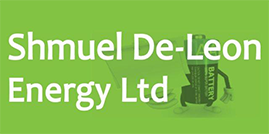While lithium-ion batteries are generally safe, they also appear in the Top-10 of historically most expensive product recalls, such as the Samsung Galaxy Note 7 which cost Samsung $5.3 billion.
Thorough testing of lithium-ion cells can be an indication of the sample product’s quality, but not of the manufacturing process, product quality consistency or effectiveness of the manufacturer’s quality systems.
We have developed with partners a comprehensive audit policy and checklist for organizations using lithium-ion cells and batteries, emphasizing the significance of safety, reliability, and sustainability in procurement. It outlines criteria for evaluating lithium-ion cell or pack manufacturers, focusing on key domains such as regulatory compliance, quality assurance, and supply chain management. The Supplier Audit Checklist operationalizes these domains into measurable parameters, enabling systematic and consistent supplier evaluations. The implementation of this policy and checklist aims to enhance supply chain integrity, ensure product quality, and promote ethical, sustainable practices. Additionally, this approach is expected to strengthen supplier relations, encourage best practices, and drive continuous improvement in the lithium-ion manufacturing sector. Ultimately, this robust audit framework is designed to bolster risk management, operational resilience, and overall business performance in the dynamic market landscape. The checklist includes all CTQs, CTPs, measurement methods & tolerances, material shelf life and storage information as well as common mistakes for each production process step.
We offer audit services to any lithium-ion battery cell or battery pack facility and will provide a detailed report and score for the audited facility. All deficiencies will be listed and can then be improved by the manufacturer well before a risk becomes a reality.
Contact us for more details.
